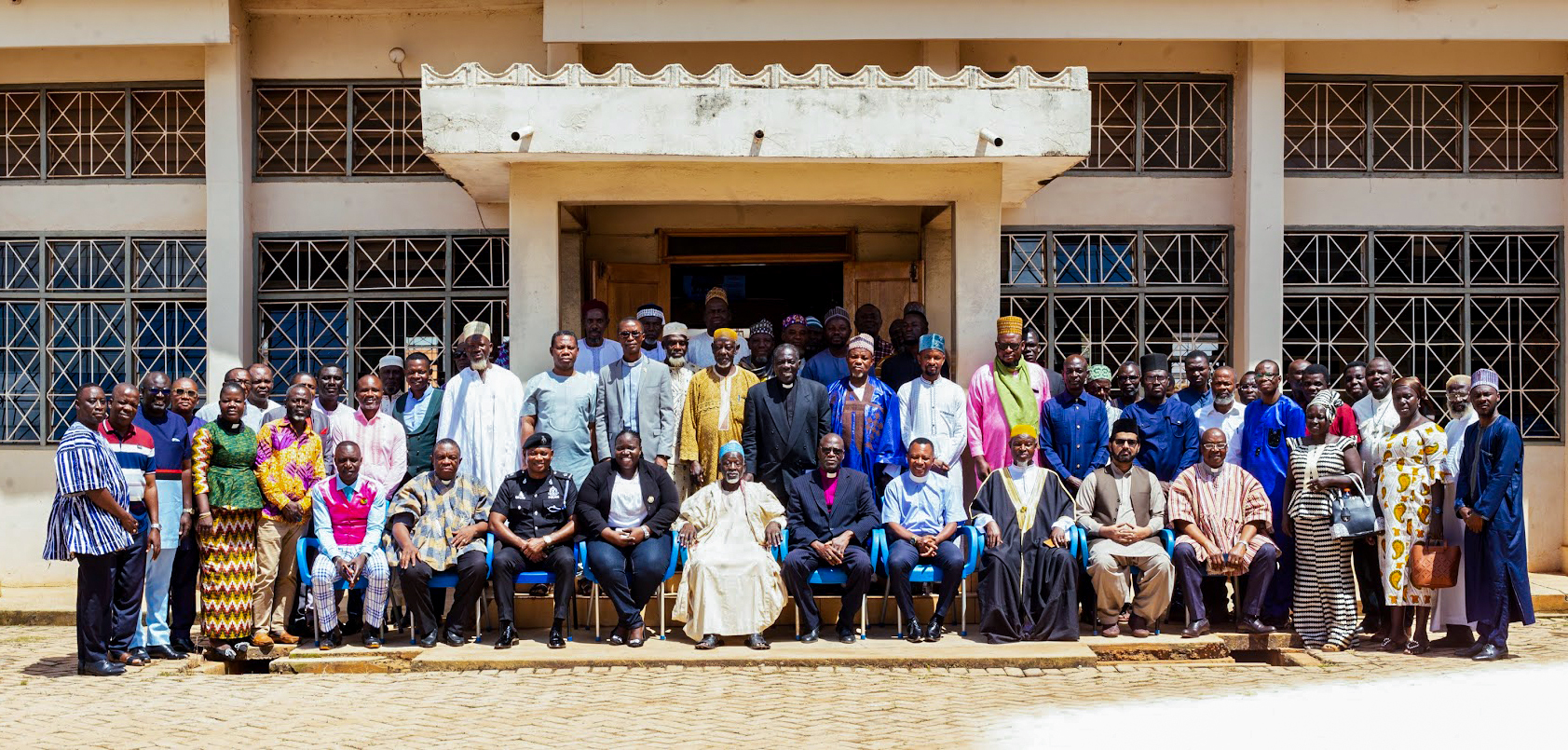
PROCMURA and the Christian Council of Ghana Partners to Host a Three-Day Conference on Peace and Peaceful Coexistence Ahead of General Elections in Ghana
- By PROCMURA
- Events
- Hits: 1321
More often than not, elections in Africa are contentious, with much at stake, including the prospects of winner-takes-all and the peace and stability of the nations. In most cases, the elections also leave people polarised along political, ethnic, and religious lines. This situation becomes even more tense when religion is implicated in the day's politics in one way or another.
To avert such scenarios and raise awareness of the need for peace before, during and after the upcoming December 7, 2024, General Elections in Ghana and promote peaceful coexistence among people of different religious and faith backgrounds, The Programme for Christian-Muslim Relations in Africa (PROCMURA) and the Christian Council of Ghana jointly organised a three-day conference in Techiman - the capital of the Bono East Region, bringing together more than two hundred (200) participants including religious and traditional leaders, government agencies, Christian and Muslim women and youth, and the media. Initially, the conference was planned to host at least one hundred and twenty (120) participants, but there was an oversubscription of more than eighty (80) people.
The conference, which started on Tuesday, 15th October 2024 to Thursday, 17th October 2024, primarily focused on promoting peace and peaceful coexistence during this electoral period and beyond, emphasising the role of religious and traditional leaders and other stakeholders in maintaining peace before, during, and after the elections. The conference, under the theme of “The Role of Traditional and Religious Leaders in Promoting Peace and Peaceful Coexistence: Ghana’s Election 2024 in Focus”, provided a platform for insightful discussions and a shared commitment to peace and peaceful elections.
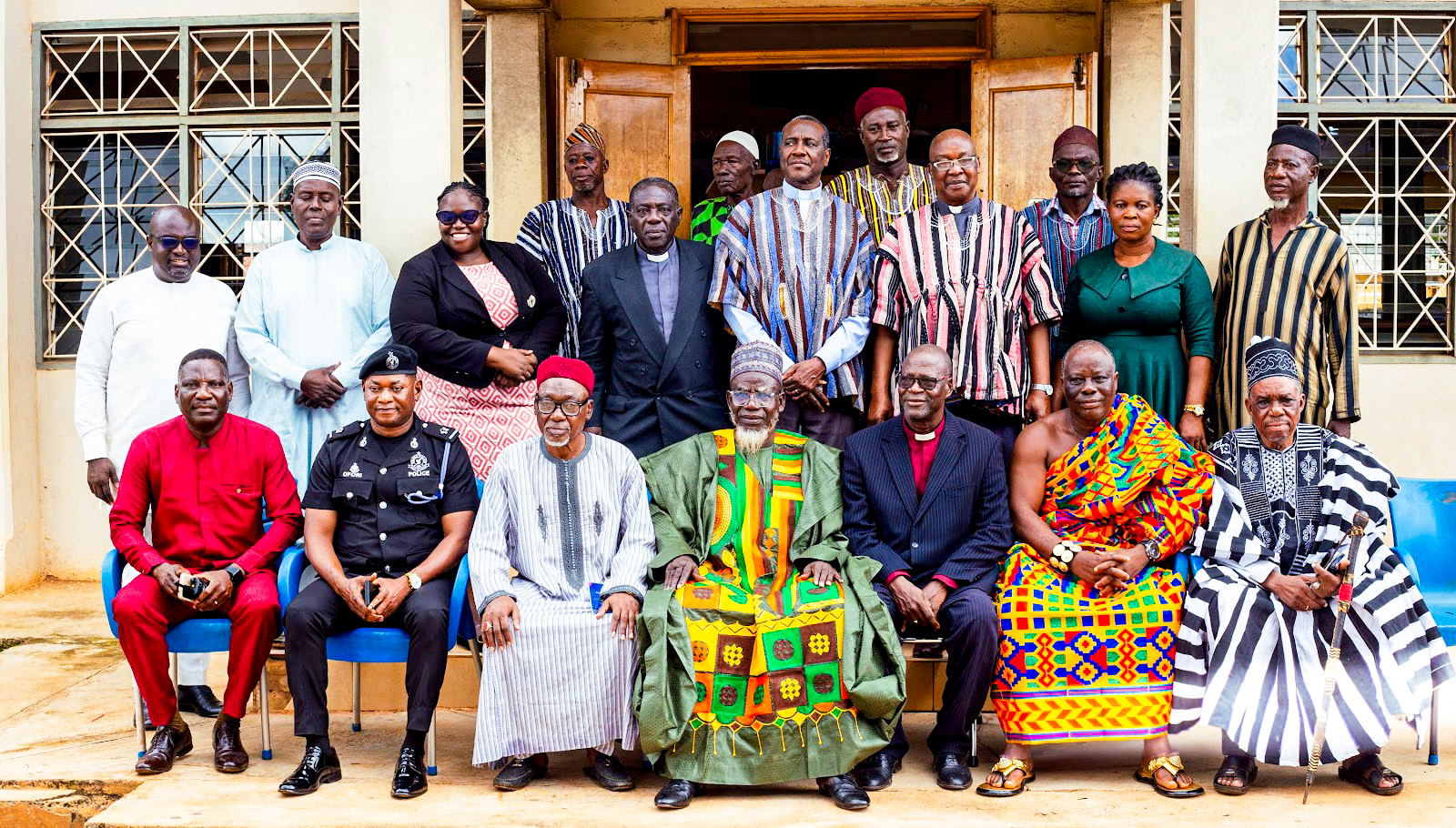
A cross-section of participants in the conference pose for a group photo.
The General Adviser of PROCMURA, Bishop Dr. Nathan Iddrisu Samwini (PhD), who led the PROCMURA delegation in a media campaign before the conference officially kicked off, reiterated that the peace that PROCMURA seeks is not just for elections; it goes beyond just elections to creating peaceful communities around the continent just as Aspiration 4 of Agenda 2063 of “The Africa We Want” demands of us. He was accompanied by PROCMURA’s Consultant, Rev. Dr. Johnson Mbillah, and the Imam of Wangarawa Community in Techiman, Alhaji Abdul Rahaman Saakho, for the talk shows and interviews at Gaskiya Radio and Classic FM, two of the major radio stations in Bono East. The media campaign was tailored to sensitise people to the need for and importance of maintaining peace and peaceful coexistence before, during, and after the elections.
On day one of the conference, PROCMURA brought together Traditional/Muslim Chiefs and Queens from the Techiman Traditional Area, underscoring their critical role in ensuring that people from all walks of life live harmoniously, irrespective of their religious, political, or even ethnic differences. This is especially true now that political temperatures continuously rise as election day draws closer.
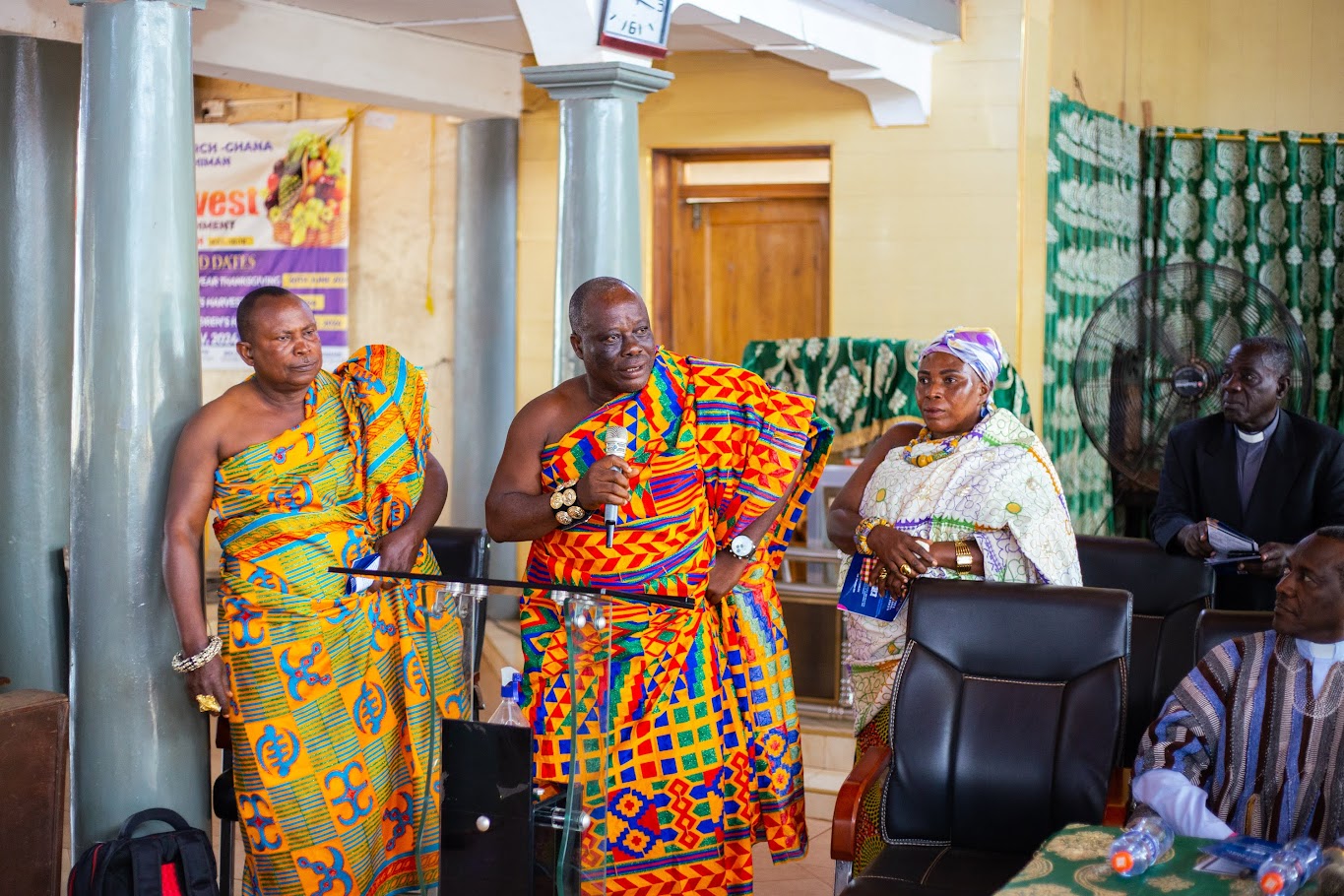
Representatives of the traditional Kings and Queens addressing the gathering.
On behalf of PROCMURA, the General Adviser, Bishop Dr. Samwini, acknowledged that traditional leaders have a sacred duty to build a peaceful and harmonious society for all their people: the ancestors, the living, and the yet-to-be-born. Therefore, their contribution to ensuring that Ghanaians enjoy peace even after the upcoming elections is needed.
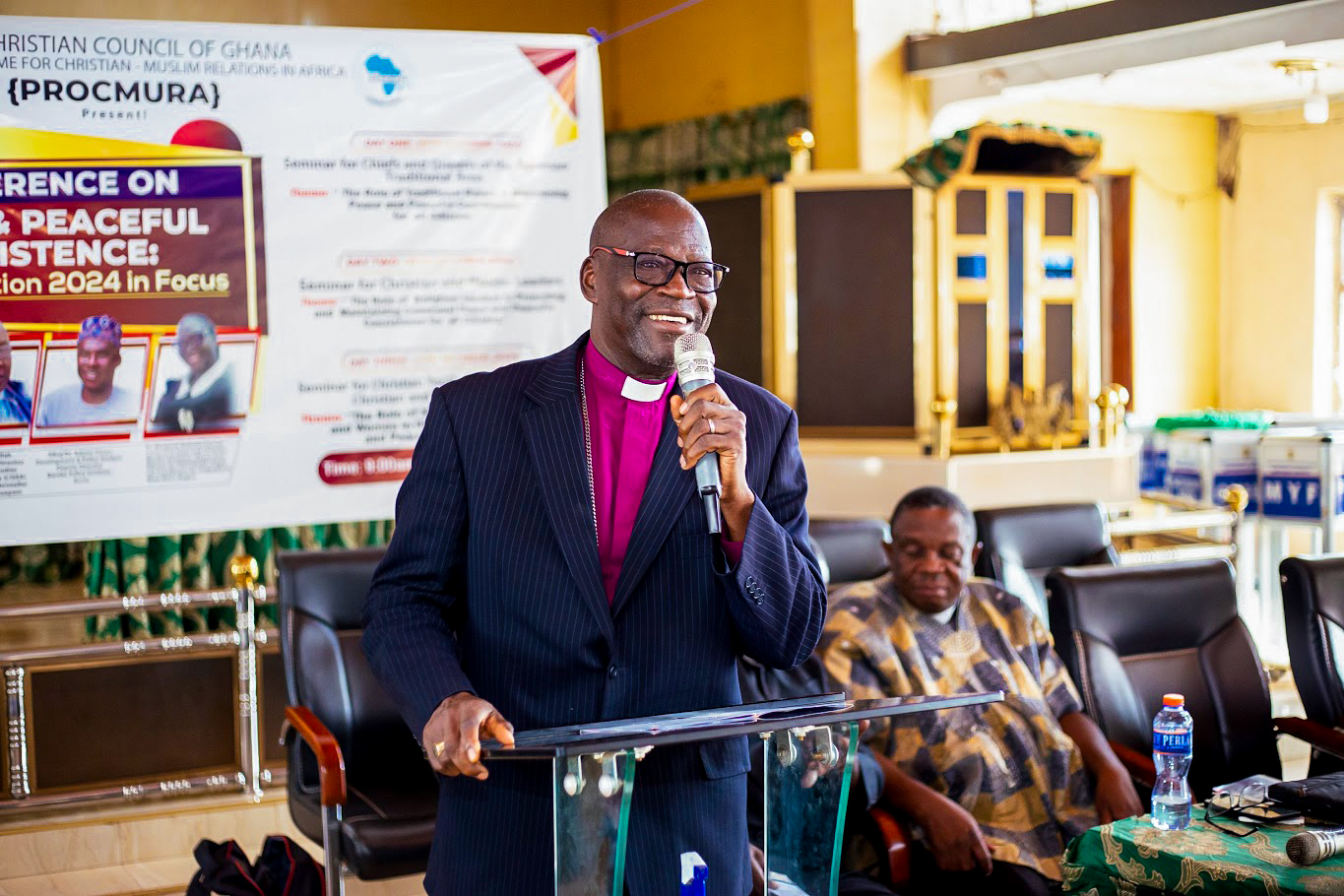
The General Adviser of PROCMURA, Bishop Dr. Nathan Samwini, making his remarks during the workshop for the Traditional/Muslim Chiefs and Queens from the Techiman Traditional Area in Ghana.
The Head Chief of Muslims in Techiman, Alhaji Hashiru Alhassan, encouraged Ghanaians, especially the youth, in the region to desist from any actions or manipulation by politicians that would trigger violence or plunge the country into conflicts during this electioneering period.
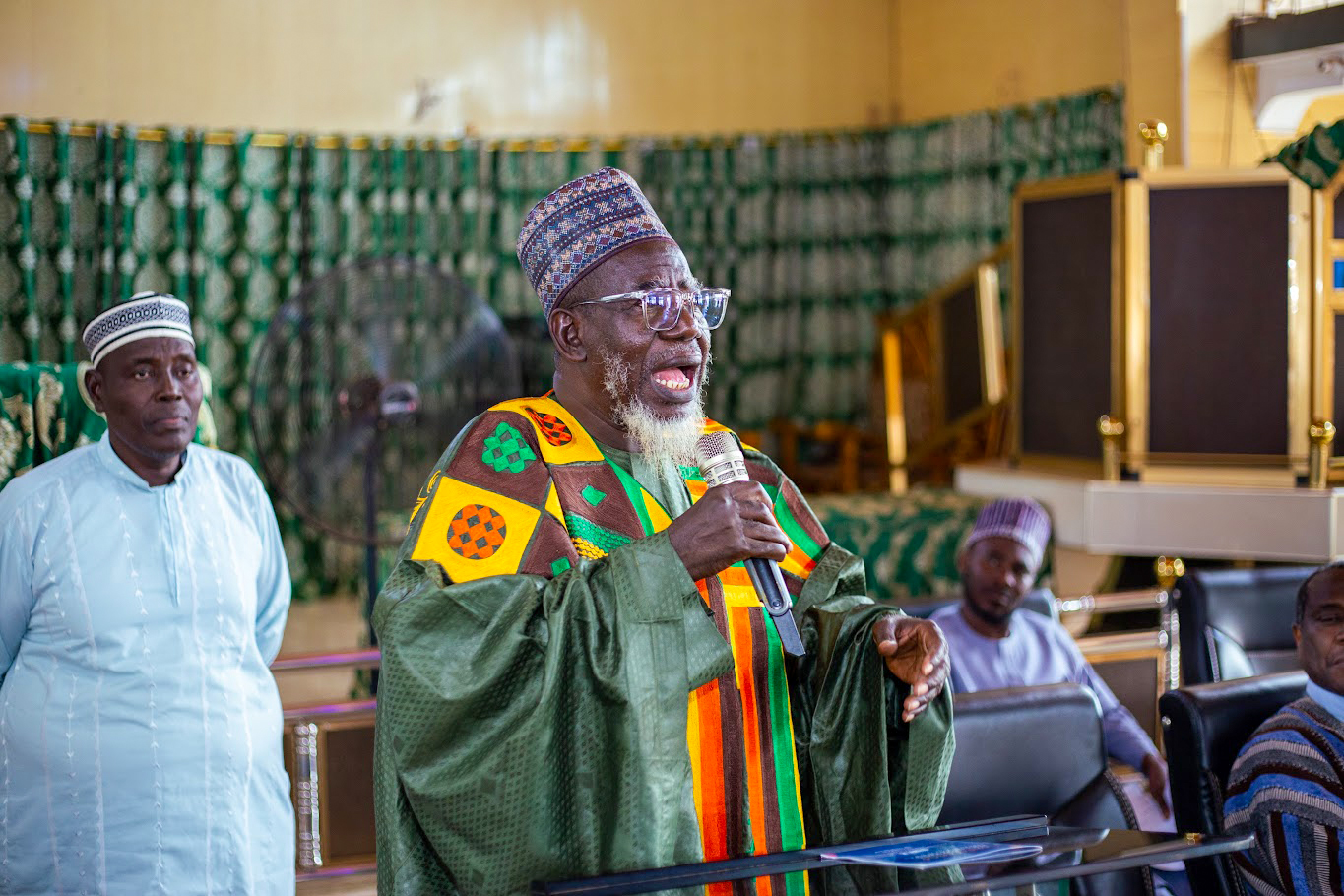
The Head Chief of Muslims in Techiman, Alhaji Hashiru Alhassan, making his contribution.
Day two of the conference, which was dedicated to a seminar for the clergy themed “The Role of Religious Leaders in Promoting and Maintaining Peace and Peaceful Coexistence for All Citizens,” provided a platform for constructive, informative, and thorough engagements for the mainly Christian and Muslim religious leaders, reminding them of their essential duty in promoting peace, particularly around election cycles when tensions are usually very high.
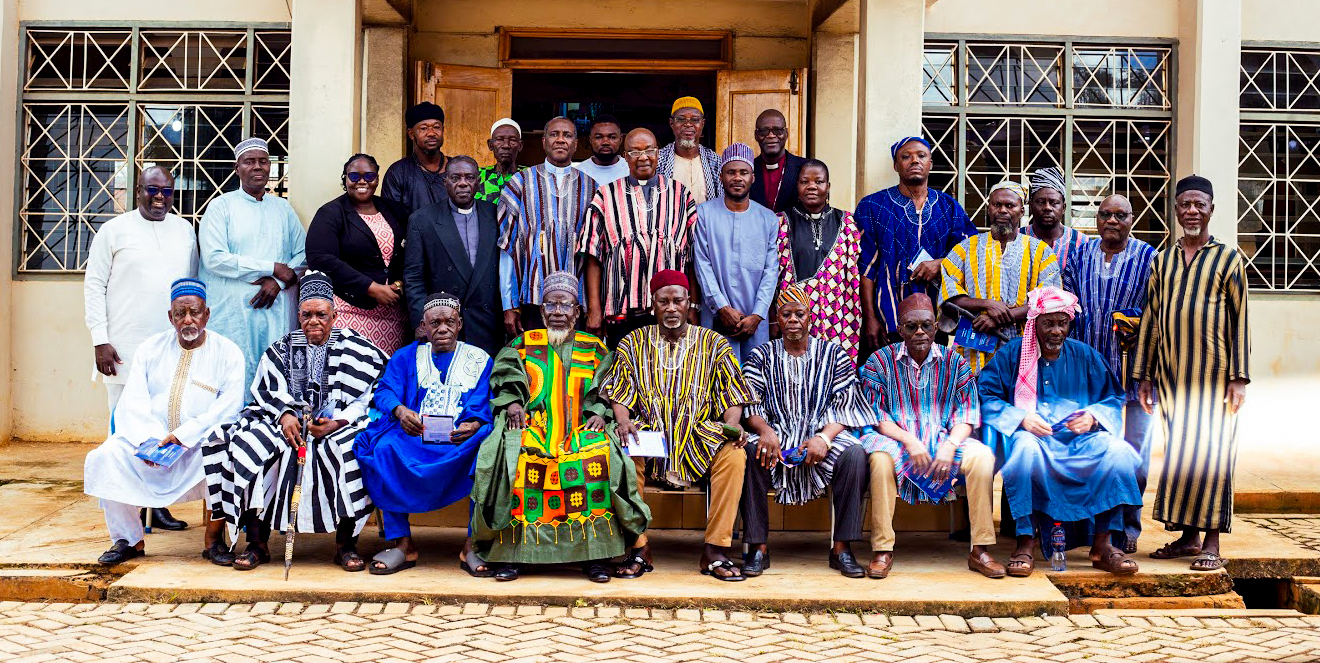
A section of Pastors and Imams pose for group photo after the religious leaders' workshop.
In his address, Rev. Dr. Johnson Mbillah assured the religious leaders that PROCMURA fully recognises the place and role of religious leaders in building a society where peace and peaceful coexistence are celebrated through constructive engagement between Christians and Muslims. He further called on them to emphasise messages of peace, peaceful coexistence, and unity in their sermons, noting that religion should be a source of hope, especially in the face of widespread conflicts across Africa, particularly those stemming from elections.
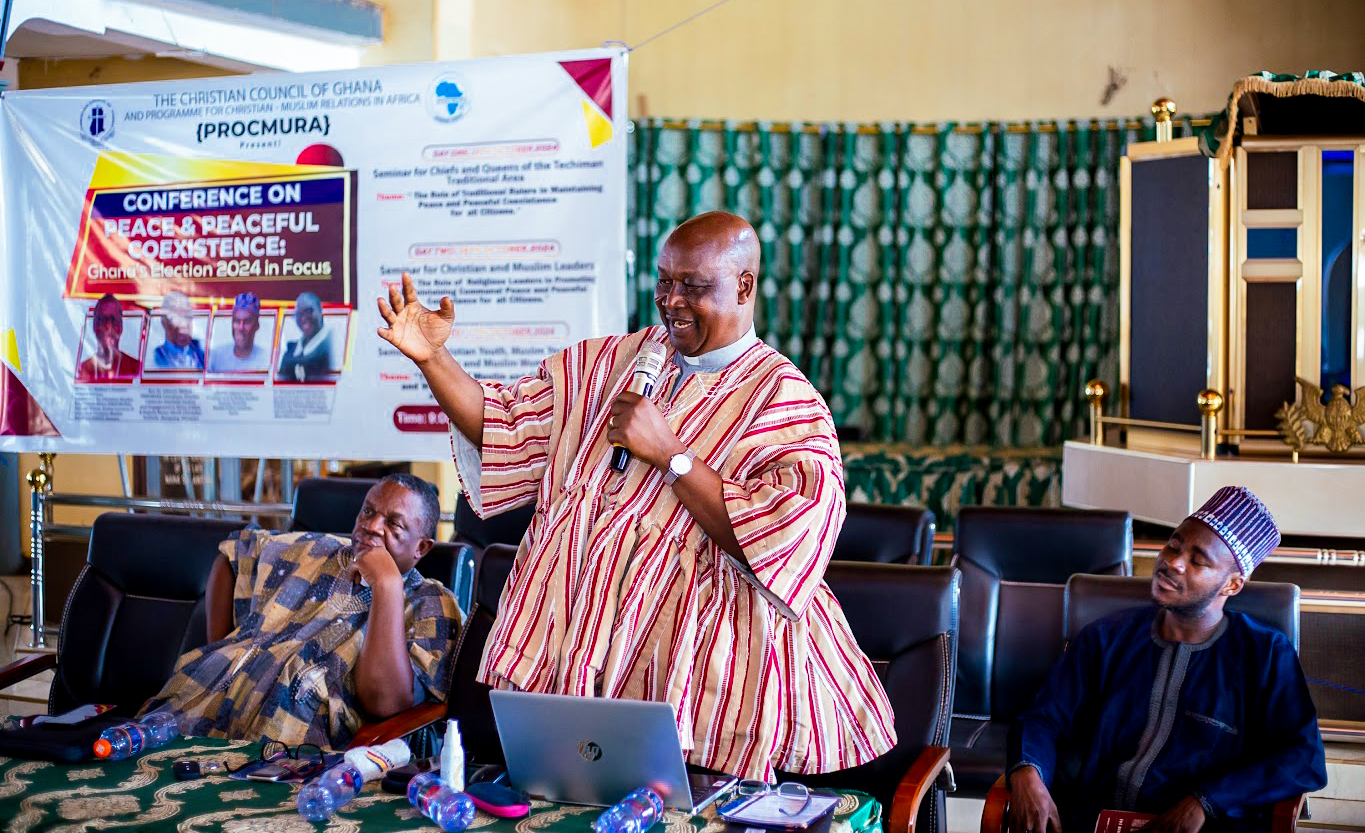
PROCMURA's Consultant, Rev. Dr. Johnson Mbillah, engaging the religious leaders.
The General Secretary of the Christian Council of Ghana, Rev. Dr. Cyril Fayose, who was present throughout the conference, commended PROCMURA for creating a platform for various stakeholders to talk and act towards realising a peaceful election in Ghana this year.
"As leaders, we hold the power to influence our communities positively. Our actions and words during this election period must reflect our commitment to peace, justice, and the well-being of every Ghanaian citizen," Rev. Dr. Fayose said.
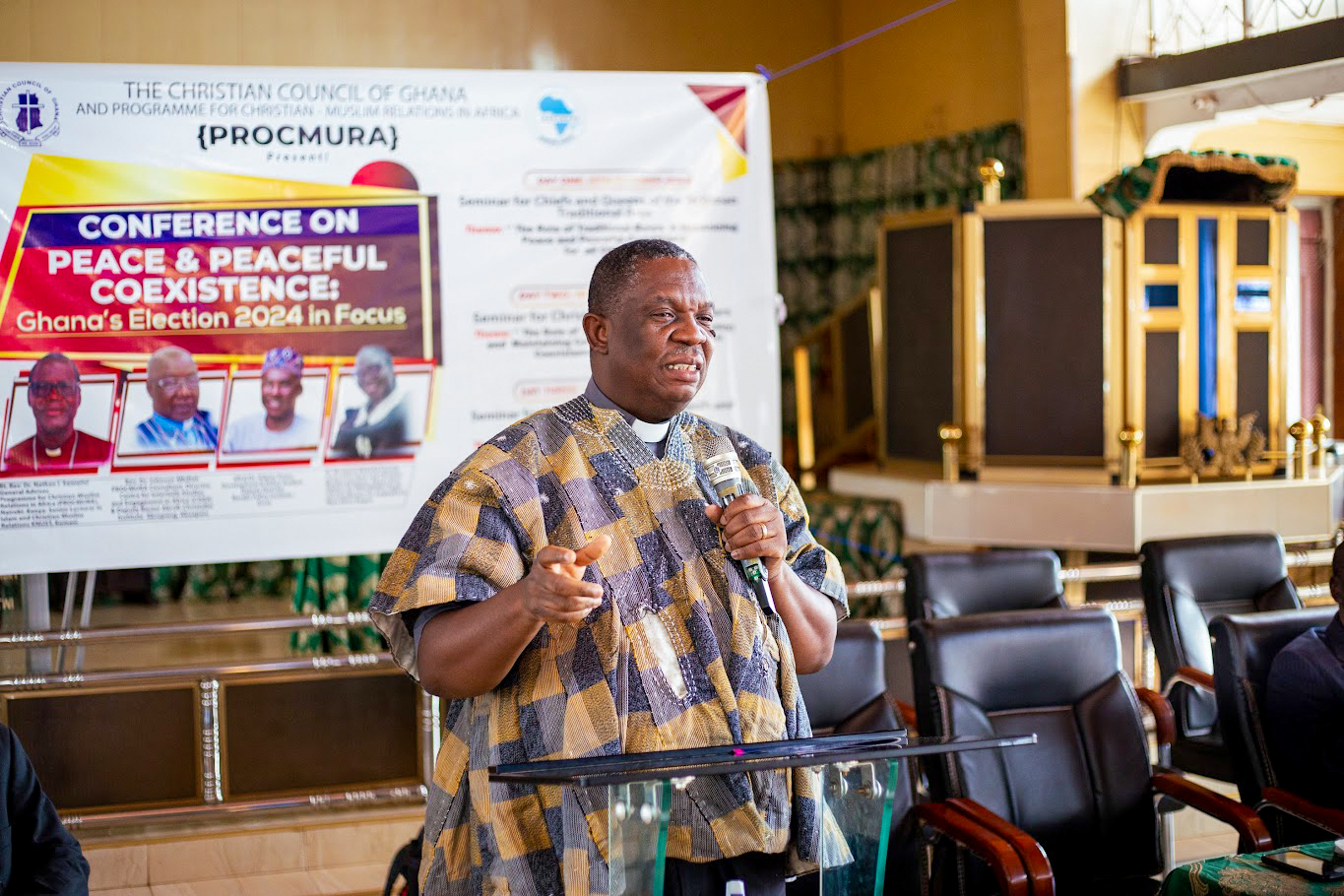
The General Secretary of the Christian Council of Ghana, Rev. Dr. Cyril Fayose, addressing the religious leaders.
The Bono East Regional Chief Imam, Sheikh Alhaji Musah Abdulia, highlighted the Muslim community's involvement in ensuring a peaceful electoral process. “Islam and Christianity, despite their theological differences, preach peace, love, and respect for humanity. Let us use these teachings to guide our actions and reject any form of violence or hatred during this critical time,” he added.

Bono East Regional Chief Imam, Sheikh Alhaji Musah Abdulia, (olding the microphone) flanked by other Muslim leaders.
More than eighty religious leaders, including Imams and Pastors, from the Techiman municipality attended the religious leaders’ seminar held at the Techiman Ebenezer Methodist Church - an oversubscription of sixty people.
The conference also featured a workshop for women and youth of Islam and Christianity — groups that often bear the brunt of political unrest but are critical to ensuring long-term peace. Women, as community anchors, were acknowledged for their role in peacebuilding at the grassroots level. At the same time, the youth were highlighted as pivotal actors who could steer younger generations away from being used as instruments of violence or destabilisation during the election periods.

One of the participants in the youth and women workshop making her contribution.
The Area Adviser of PROCMURA in Ghana, Dr. Margaret Makafui Tayviah, challenged the youth and women to join hands with others in preserving the peace that Ghana enjoys today. The youth and women were sensitised on how to de-escalate potential conflicts and promote messages of peace within their respective communities.
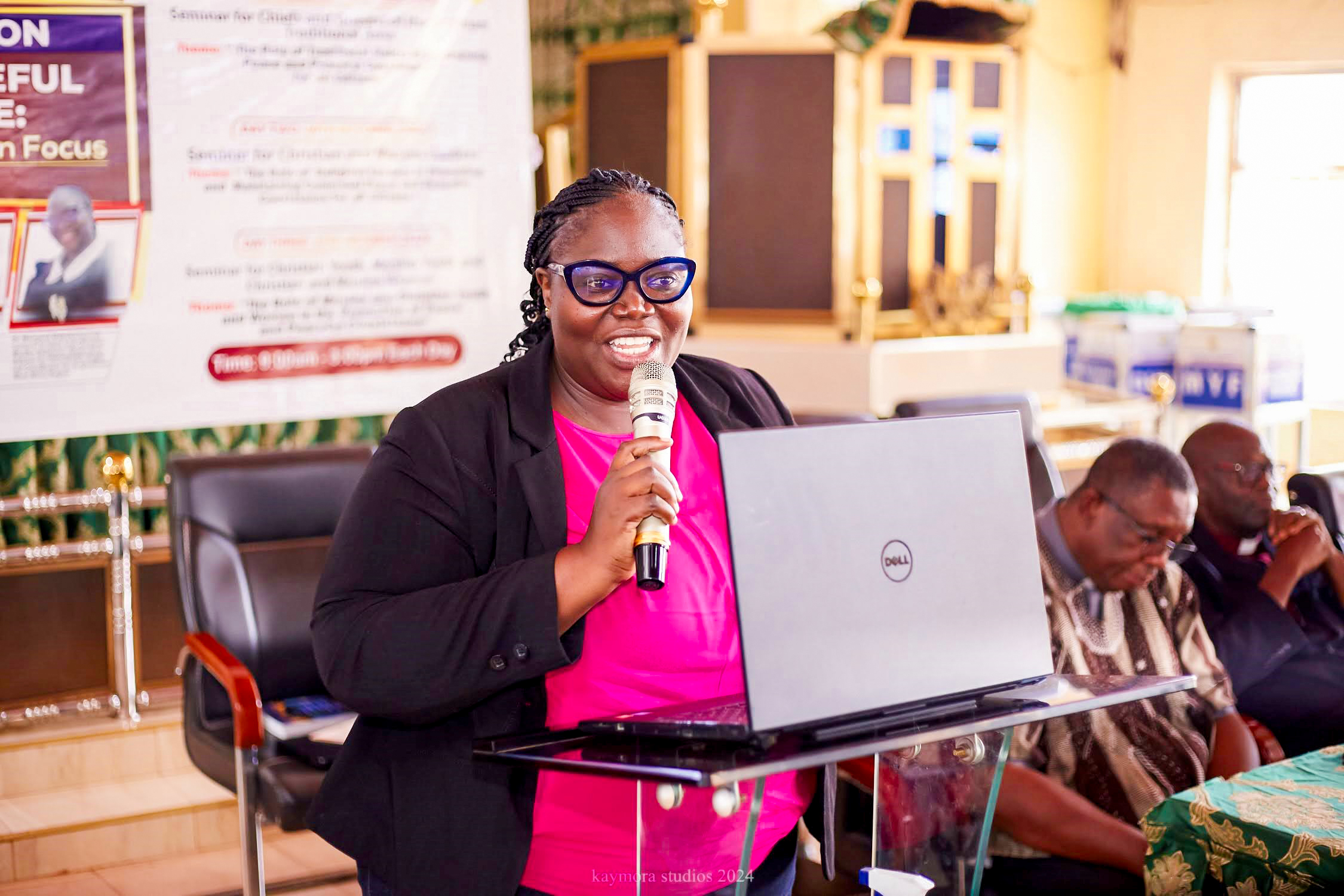
The Area Adviser of PROCMURA in Ghana, Dr. Margaret Makafui Tayviah, delivering her presentation.
The three-day conference was a resounding success, providing a strategic planning platform to promote peace before, during, and after Ghana's elections. By bringing together a wide array of stakeholders, the event reinforced the collective responsibility of all sectors in ensuring peace and preventing electoral violence. As Ghana moves closer to its elections, the commitments made at this conference will be a guiding force for fostering unity, tolerance, and mutual respect among all citizens, irrespective of their religious and political affiliations.

